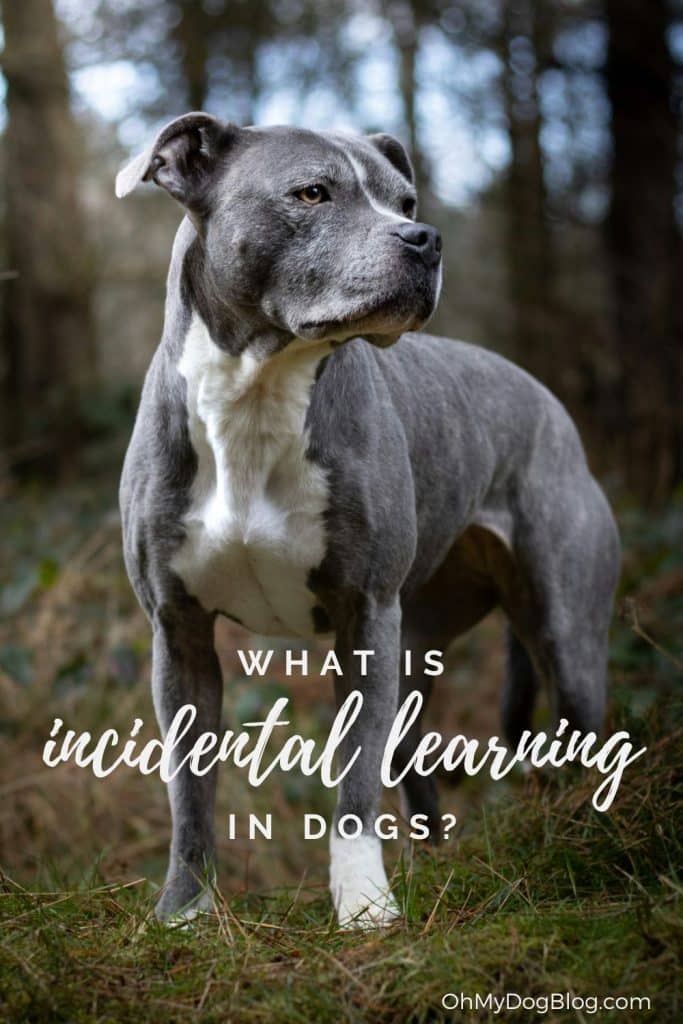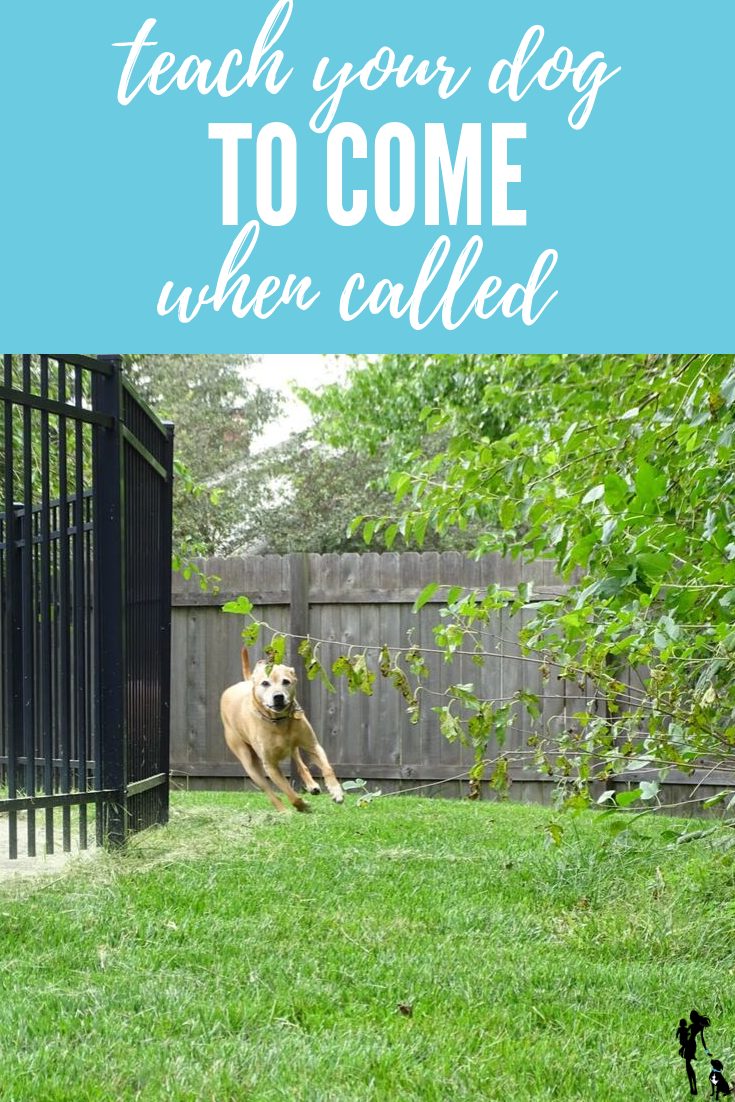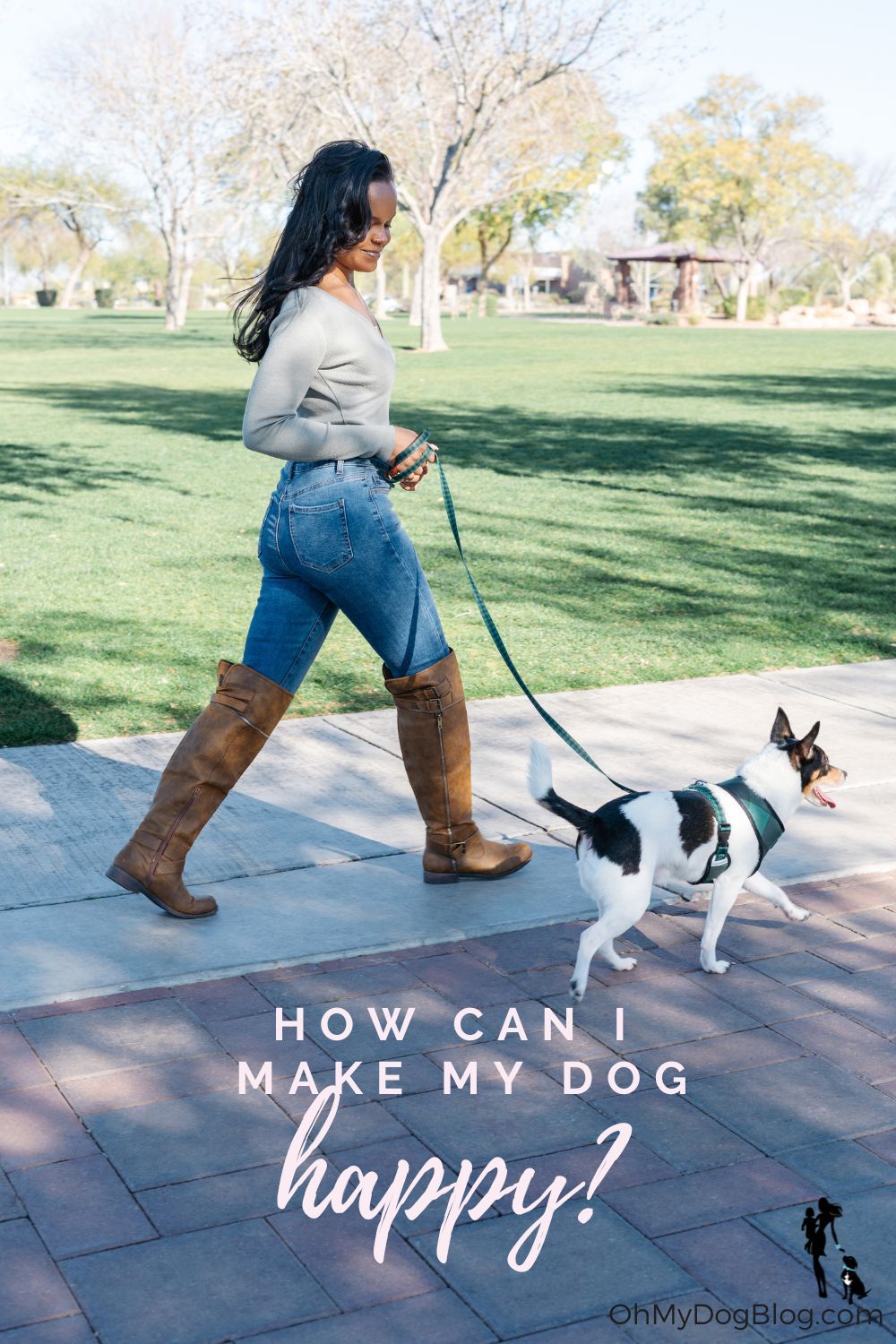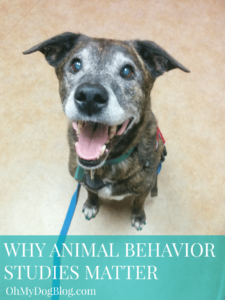Incidental Finding out in Canine – Oh My Canine!
[ad_1]
Do any of these eventualities sound acquainted?
You’re heading out to a restaurant to satisfy some mates. You’re on the cellphone collectively together with your mom talking over the plans and likewise you by probability say, “We’re going to grab dinner.”
On the phrase “dinner,” your canine leaps to her ft and runs into the kitchen to await her bowl.
Or, you’re on the purpose of depart the house. You say to your confederate, “Did you place gas throughout the c-a-r?” Because of you already know if you say “automotive,” your canine could be off like a rocket, ready for a journey.
Or, maybe, your canine is conscious of “vet” means, properly, the vet. So, it is a should to fastidiously focus on spherical it whereas preparing for an appointment so your pup doesn’t run off and conceal. “We now have to get his poop sample for the pet doctor.”
Or, really, another phrases associated to at least one factor your canine wants (or would not want): take care of, stroll, cat, and so forth.
In each of these conditions, you’re seeing the outcomes of incidental learning at work!

Social learning, latent learning, incidental learning, canine learning idea: What does all of it suggest?
Let’s do a quick definition breakdown.
To start with, latent learning, incidental learning, and implicit learning all suggest simply concerning the an identical issue. Often, incidental and implicit learning describe human learning, whereas latent learning describes animal learning. Why? I don’t know. Nevertheless all of them check with the an identical means of shopping for data by the way in which.
A helpful definition (bolded sections are my emphasis):
Incidental learning is unintentional or unplanned learning that outcomes from totally different actions. …
Incidental learning occurs in some methods, along with the following: by comment, repetition, social interaction, and draw back fixing; from implicit meanings throughout the classroom or workplace insurance coverage insurance policies or expectations; by watching or talking to colleagues or specialists about duties; and from being pressured to easily settle for or adapt to circumstances. Incidental learning is situated, contextual, and social.
https://eric.ed.gov/?id=ED446234#:~:textual content material=Incidentalpercent20learningpercent20occurspercent20inpercent20many,forcedpercent20topercent20acceptpercent20orpercent20adapt
Your canine (and your baby, associate, coworker…) is learning frequently with out aspiring to be taught. So, not like studying or memorizing or sitting in a classroom purposefully shopping for information, incidental learning happens with out intention.
I found a bunch of fascinating US historic previous from watching Hamilton. I didn’t watch it to be taught. I wanted it to be entertained and found particulars by the way in which.
Whereas having fun with board video video games, a toddler learns elementary addition as he strikes his piece in accordance with what he rolls on two dice. He isn’t which implies to be taught {{that a}} 2 roll plus a 3 roll equals shifting 5 squares. Related with kids who uncover methods to be taught a map whereas having fun with a on-line recreation. The tutorial is incidental to the pleasing.
How do canines be taught by the way in which?
A few examples from the canines who’ve been in my life:
Through repetition, Emmett found that when he acquired a bathe throughout the morning, he was going to work as a treatment canine.
Through draw back fixing, Cooper found he may pop open his crate himself. He shoved the pan out from beneath first because of it pressured the once more hinges open and he may wiggle out.
Through social interaction, Penny found she is going to get pets immediately if she bops you collectively along with her nostril.
I’d prefer to know what you’ve seen your canine learning by the way in which. What does your canine know that you simply simply didn’t intentionally educate?
Is the kind of learning good or unhealthy?
It is what it is. I’ve seen so many posts about “how do I get my canine to stop xyz” or “to do abc.” Correctly, after we (or our canines) buy information by the way in which, it’s pretty anchored in and may solely be modified intentionally.
For Penny’s occasion, the nostril bopping is super annoying. She does it each time she wants consideration, and it could be disruptive. For instance, she spends an awesome chunk of the morning shoving my arm off my mouse and keyboard in the hunt for consideration after I’m making an attempt to start out out my work day. Not splendid. Nevertheless, moreover, not one factor I’m going to work onerous on to proper because of she lastly takes a toy and goes to the couch.
For canines who be taught phrases (automotive, dinner, cooking, stroll), individuals can use it to our profit to encourage the conduct we want. And, after we don’t want the conduct, we’re outfitted to offer you quite a few synonyms and codes to not spark the response.
How is incidental learning utterly totally different from classical or operant conditioning?
Classical conditioning informs most likely probably the most elementary canine teaching methods. The well-known occasion, in any case, demonstrated canines found {{that a}} bell signified meals was on the way in which through which. Over time, this evaluation led to clicker teaching: a conduct earns a click on on and the press means a reward is on the way in which through which!
This may increasingly happen by the way in which. For instance, if each time you carry the leash off its hook by the door, it makes considerably jingle sound, your canine will most likely be taught by repetition that listening to the jingle means he’s going for a stroll.
Nonetheless, classical conditioning is normally intentional, not incidental.
Operant conditioning focuses on the consequence of a conduct. Fashionable, science-based trainers use constructive reinforcement these days (using treats or reward to encourage a specific conduct). Usually the consequence is incidental (usually generally known as a pure consequence) like when a canine jumps up on the kitchen counters while you’re at work and indulges throughout the bag of bagels omitted.
How does a canine with a incapacity be taught this way?
This can get to the middle of why I started researching this.
So much incidental learning happens with a daily routine (comment and repetition) after which turns into habituated. For instance, if it’s near-ish to 5 PM, as shortly as I open the silverware drawer, Ripley assumes I’m about to feed them, so she runs to the kitchen. Penny, with none listening to, has not however made any affiliation with meal cases.
After we talk about automotive, vet, take care of, and so forth, she’s not selecting one thing up by the way in which.
Does she should? No. In reality not.
Wouldn’t it not be helpful? Utterly. For her and for me.
She is learning by the way in which from comment, social interaction, and draw back fixing, and fewer so by repetition–a minimal of that I’ve seen–nevertheless her conduct isn’t exhibiting me that she’s acquired an entire lot of data by the way in which however.
Thankfully, when Astrid was a toddler and enrolled in our state’s early intervention program, one in every of our therapists spoke extensively about how vital incidental learning is to kids. She really helpful we sign or narrate all of the issues so Astrid may select up on the problems she couldn’t by way of her ears. I’m theorizing / questioning that continually signing with Penny might help her buy information by the way in which, too. So, I’m going to offer it a whirl.
Let me know if you’re enthusiastic a few deeper, further specific exploration of incidental learning in canines with disabilities like deaf, blind, deafblind, and so forth.
5 strategies to promote incidental learning in your canine:
You presumably can capitalize on the incidental learning course of if you’ve received one factor specific in ideas you want your canine to be taught that you simply simply don’t understand how one can or don’t want to arrange.
- Prepare your canine instantly nevertheless in an incidental technique. Let’s say you want your canine to “confirm in” with you when you’re out on a hike. Whether or not or not you haven’t however started teaching or hit a snag, try an incidental route. Allow your canine to odor and uncover, nevertheless pay terribly shut consideration and reward your canine for any confirm in with out asking for it. In the end, these confirm ins will grow to be automated.
- Put your canine in circumstances the place incidental learning can occur. This suggests it is important be intentional collectively together with your conduct, the phrases you make the most of, and the way in which you dole out rewards. In reality, that doesn’t suggest all day prolonged, nevertheless fairly solely spherical these duties or experience you want your canine to be taught.
- Comply together with your canine’s pursuits. Acquired a canine who likes to play ball nevertheless who barks her face off on the doorbell? Use it! Toss her a ball when the doorbell rings. Perhaps, over time, she’ll run to grab her ball when she hears the bell.
- Assure consideration. Should you want your canine to be taught one factor from watching you, first be sure that your canine is listening to you! This can be as simple as calling his or her title or as even merely able to do one factor until your pup appears over at you naturally.
- Sprinkle in learning with pleasing. In case you’re having fun with tug, work on an automatic sit or heel or regardless of conduct it’s worthwhile to positioned on autopilot. In between play bouts, encourage the conduct. Your canine is targeting the pleasing whereas shopping for new experience.
What has your canine found unintentionally? Has this put up sparked any ideas for the way one can capitalize on incidental learning? share throughout the suggestions!
BTW, if you liked this put up, I’m thrilled! And in addition you’ll probably benefit from my forthcoming e book, For the Love of Canine, from Regalo Press in February 2025. It’s chock crammed with the latest evaluation in canine cognition combined with tales of my canines to ship that evaluation to life.
To stay up-to-date on the latest with my publication data, please be a part of the mailing report or observe alongside on Instagram. I’d love to connect with you further!
{Photograph} by Amy Starr on Unsplash
Study Additional
[ad_2]
Provide hyperlink














Post Comment